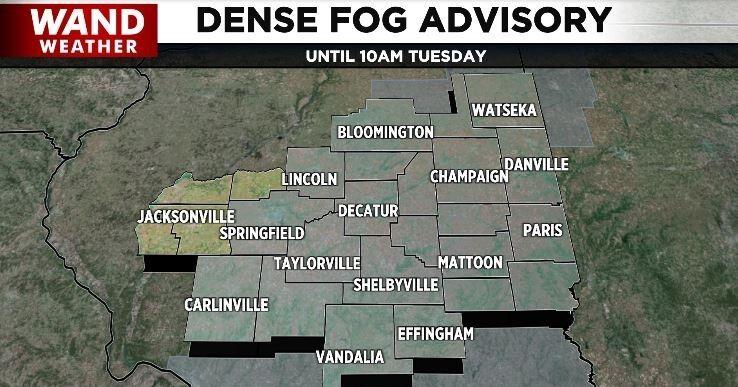Election day in the city
:quality(70)/cloudfront-us-east-1.images.arcpublishing.com/tronc/DOXP5EUWJ5HVBGOMVPN3OYJQDY.jpg)
Election Day is our Super Bowl in Chicago.
Reporters, editors, designers and photographers at the Tribune have been planning for Tuesday since the primary election, which ended on June 28.
I have fond memories of working late last election night, which was always an adrenaline rush. While I don’t write about individual races or interview candidates, my work in the newsroom usually involves helping to track the results and figure out how to display them visually, as well as keeping up with updates on local and national news networks.
I followed the Electoral College results in 2016, for example, with help Chia versions of presidential candidates Donald Trump and Hillary Clinton.
In previous Election Day campaigns in our fine city, some difficult situations have arisen, as my former colleagues Mark Jacob and Stefan Bentzkofer wrote about in their 2011 column – 10 things you might not know about the Chicago election. In this newsletter, I talk about some of them — including the most infamous headline in the Tribune’s 175-year history.
And whatever your plans are for Tuesday, make time to vote by visiting your designated polling station or return your postal ballot. I can’t wait to see your “I Voted” stickers on social media.
[ Attention Chicago voters: Find your new polling place for the 2022 general election on Nov. 8 ]
It’s easy to become a Tribune subscriber $12 for a 1-year digital subscription.
Thanks for reading! See you at the polling stations!
— Corey Rumor, Visual Reporter
History of Chicago | More newsletters | Puzzles and games | Today’s edition of the electronic newspaper
When he was elected mayor in 1927 — with the support of Chicago Outfit boss Al Capone — jubilant supporters flocked to his boat, the Fish Lovers’ Club, well known as the Floating Spy in Belmont Harbor. So many people climbed aboard that the boat sank in the mud, inspiring the joke that so much gin spilled into Belmont Harbor that it became the world’s largest martini.
Thompson, a Republican, served three terms as mayor, from 1915 to 1923 and from 1927 to 1931. He was defeated in 1931 by Anton Cermak, beginning the Democratic Party’s still-unbroken control of City Hall. Read more.
- Photo gallery: “Big Bill” Thompson: Chicago’s most infamous mayor
- Rick Kogan: Filling the bridges of “Big Bill”.
- Photo gallery: Chicago Mayor Anton Chermak and the assassination attempt
:quality(70)/cloudfront-us-east-1.images.arcpublishing.com/tronc/QDB2Z7ZRFFFMFH3Z5IWNU53N2E.jpg)
Vintage Chicago Tribune
Every week
The Vintage Tribune Newsletter is a deep dive into the Chicago Tribune archives, featuring photos and stories about the people, places and events that define the city’s past, present and future.
The 1928 Republican primary in Chicago was so violent that it was called the “Pineapple Primary,” named after the strewn grenade launchers. But the general election in November was the city’s cleanest in years. Who has earned the credit? Al Capone, whose associates participated in earlier violence.
After the bloody primaries, the founder of the Chicago Crime Commission, Frank Loesch, visited Capone and demanded an end to the violence. Capone’s answer? “Fine. I’ll order the cops to send out police cars the night before the election, bust up all the hoodlums and keep them in the fridge until the polls close.” Read more.
- Frank Loesch was a crime fighter almost unparalleled in Chicago history.
- The city that gave the world the mother of all explosive devices and ushered in the atomic age also experienced pineapple primaries, particularly violent in March and April 1928, which saw many grenades and other explosives thrown between warring factions vying for political control of City Hall. . In short, Chicago has a history of bombings.
- From the archives: Capone’s powerful muscles in the unions
:quality(70)/cloudfront-us-east-1.images.arcpublishing.com/tronc/VWMWRPHV5AC2AVRXJNG6B2NHPM.jpg)
The press went to press the night before at 10:30 p.m., and no one, and I mean no one, believed that the results of the presidential election would favor Harry Truman, writes Tribune columnist Rick Cogan. Read more.
:quality(70)/cloudfront-us-east-1.images.arcpublishing.com/tronc/XTSLTRU5I5E55GUGCVDPLBGMOE.jpg)
On April 5, 1955, Richard J. Daley was elected the 48th mayor of Chicago. That night at his tavern on North Avenue, a place unfamiliar to newspaper reporters, Ald’s 43rd Ward. Mathias “Paddy” Bauler, the famous City Council clown since the 1930s, when he entertained Mayor Anton Cermak by rolling his 275-pound wrestlers across the floor, uttered a phrase that has been repeated for decades: “Chicago is not ready for reform.” . Read more.
:quality(70)/cloudfront-us-east-1.images.arcpublishing.com/tronc/2A5COA3U5VGO5FMDCMQUFYRCI4.jpg)
In March 1972, the Tribune merged with The best state association send 30 people undercover as judges and election observers. They discovered widespread fraud. The newspaper did not stop there. Reporter William Mullen was hired as a clerk for the election commission and worked undercover for three months. Board Chairman Stanley Kasper Jr. once held a staff meeting and demanded loyalty: “There will be no cracks in the wall of this office come November. No one broke into this office from the outside.” Mullen was standing 15 feet away. The stories won the Pulitzer Prize. Read more.
Join ours Chicago History Facebook Group more from Chicago’s past.
Have an idea for the Vintage Chicago Tribune? Share this with Ron Grossman and Mariana Mather at rgrossman@chicagotribune.com and mmother@chicagotribune.com.
https://www.chicagotribune.com/history/ct-vintage-chicago-tribune-election-day-in-the-city-dewey-defeats-truman-20221103-vovasbz7nnc7refpsst7l5lg6u-story.html#ed=rss_www.chicagotribune.com/arcio/rss/category/news/




:quality(70)/cloudfront-us-east-1.images.arcpublishing.com/tronc/F3BJ6ELZQ5EQ5KPTSHCB3KX7O4.jpg)